Africa Eats has a unique structure, blending the best parts of a venture capital fund, a business accelerator, and Berkshire Hathaway to create an investment company optimized to support fast-growing, mission-driven, for-profit African companies.

Africa Eats focuses on funding and growing for-profit solutions to hunger and poverty across Africa. Hunger, as most Africans are farmers (or children living on a farm), and together they grow enough food for the 1.2 billion Africans, but with post-harvest losses, the continent instead imports food.
The solution is relatively simple. Buy the foods the farmers grow. Distribute that food to retailers, minimizing losses a long the way. Another term for this is building the food/ag supply chain.

This works in Africa, just as well as it worked in feeding America and Europe 100-200 years ago when those continents were similarly full of smallholder farmers, post-harvest losses, and widespread poverty. The food/ag supply chain is an overlooked key piece of infrastructure for economic growth.
The challenge is that most of of this infrastructure is missing in Africa. There are tens of thousands of micro enterprises trying to do the work, but few investors seeking tiny companies, no matter how good the solution. What happens when you fund these companies?
Two dozen SMEs earned over $35 million in annual revenues buying from smallholder farmers, processing the food, and distributing it to retailers.
60x growth, a 58% compounded growth rate over the past decade, all with just a few million dollars of investment capital.

Some companies are growing faster than others. The oldest makes the others looks small, but in a moment we’ll share many stories of companies that were selling just tens of thousands of dollars of food a few years ago which are now selling over $1 million per year.
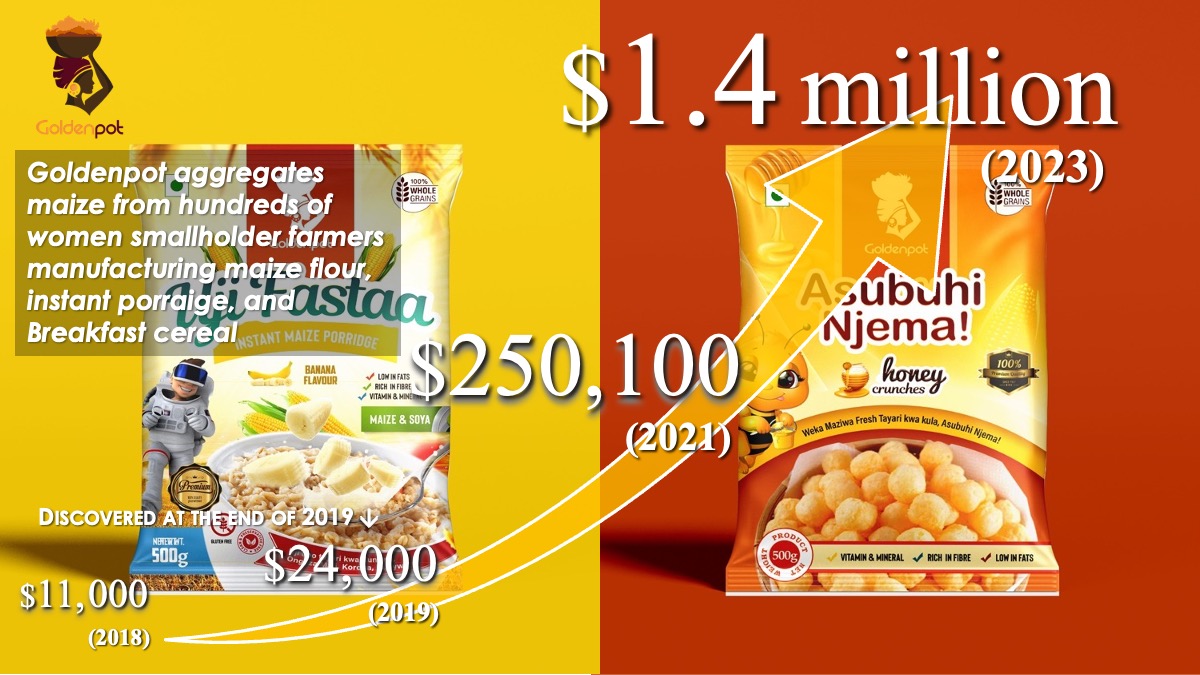
Goldenpot sold just $24,000 of maize flour in 2019, when we found them. With a few hundred thousand dollars of investment capital, they grew well past $1 million in 2023 as the only producer of breakfast cereal in Tanzania.
Swahili Honey sold just $62,000 of honey back in 2016. We found them in 2018 and invested just €20,000. No one invested anything else until 2021. Again with just a few hundred thousand dollars, this is now the second largest honey and beeswax company in Tanzania, this year closing in on $3 million in annual revenues.
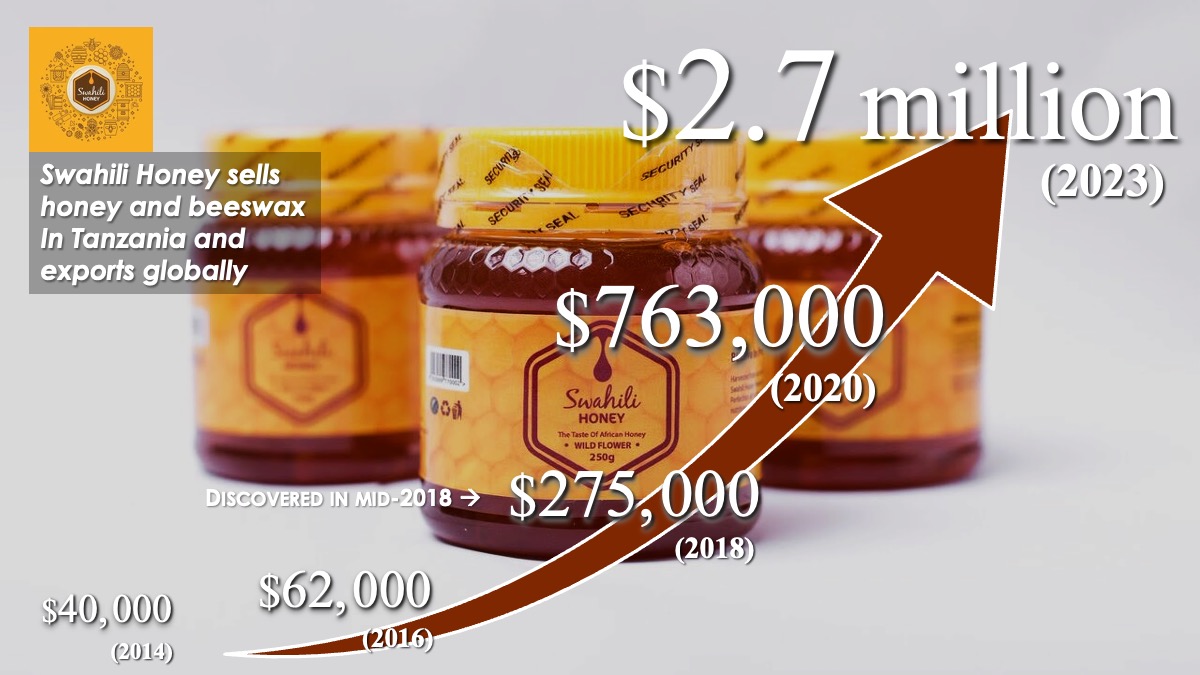
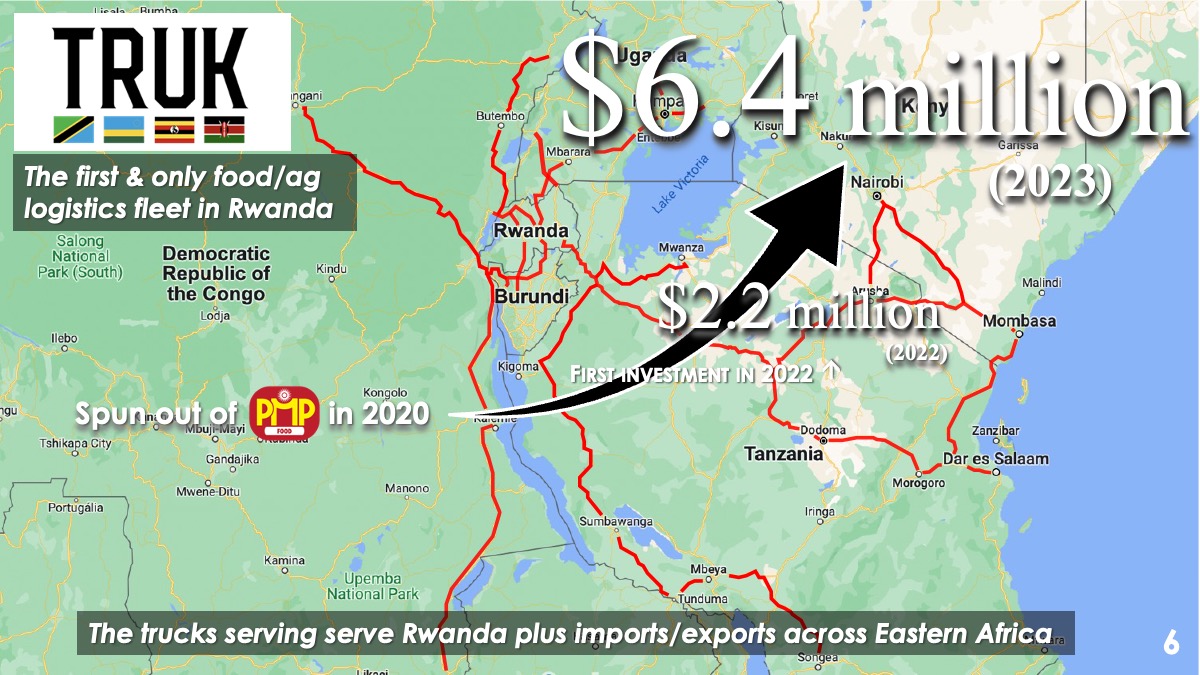
TRUK Rwanda launched early in the pandemic, in April 2020. It was bootstrapped for two years, with no investment capital, not even from the founder. The company grew past $6 million in annual revenues in 2023.
In this case as a food/ag logistics company, serving other food/ag supply chain companies across Eastern Africa.
The oldest and largest company in the portfolio is East Africa Foods. $100,000 in its first year of business, way back in 2013. Past $14 million in revenues in 2023.
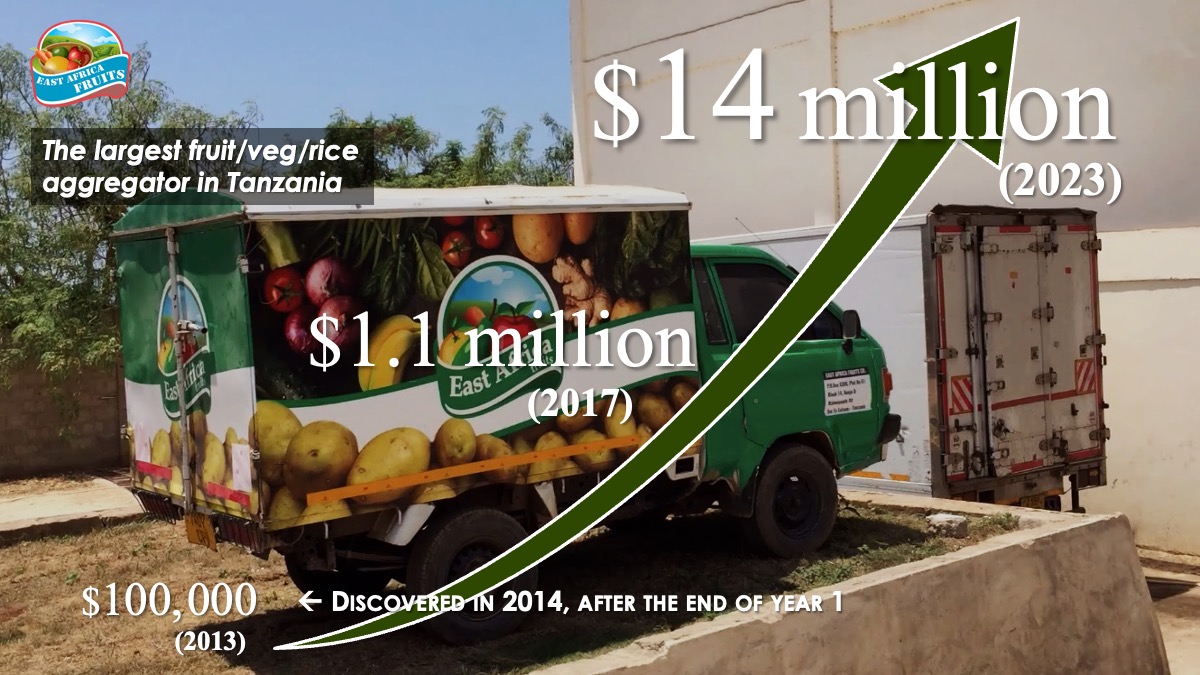
For more success stories, see the blog post on “fast growing SMEs“.
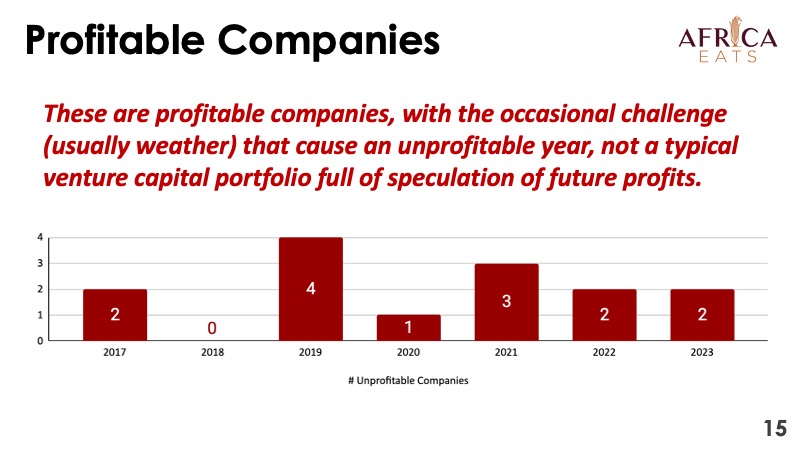
Even more amazing than the growth rate and capital efficiency is the fact that these are profitable companies. Or nearly all so.
Unlike venture capital, these companies are not burning capital to buy market share, they are earning market share by satisfying customer demand, with profitable operations.
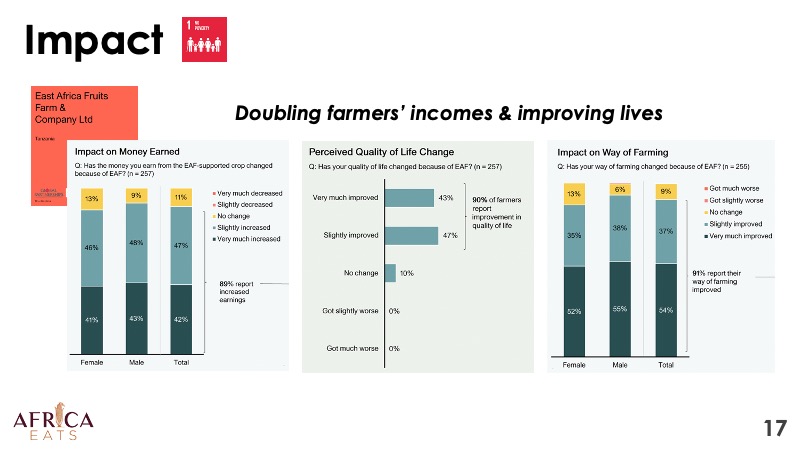
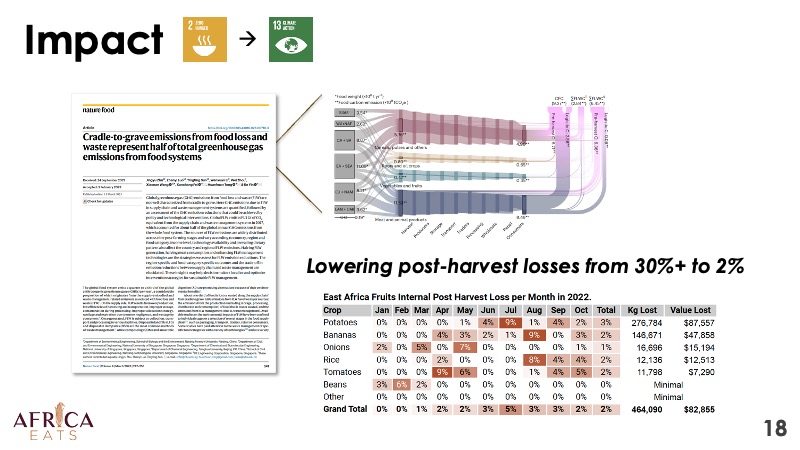
Fast-growth, profitable, and highly impactful too, with research from 60 Decibels and others showing that this activity does in fact lower poverty, decrease hunger, and greatly lower post-harvest losses. On average incomes of farmers are doubled. On average, post-harvest losses drop from the typical 30%-50% to just 2%-3%.
Another lesson we learned from Berkshire Hathaway is to let the companies manage themselves, providing guidance and oversight with as little holdco overhead as possible.

Back to the lesson from Berkshire Hathaway… if we don’t plan on any exits, how do equity investors earn a return? Take the investment company public.
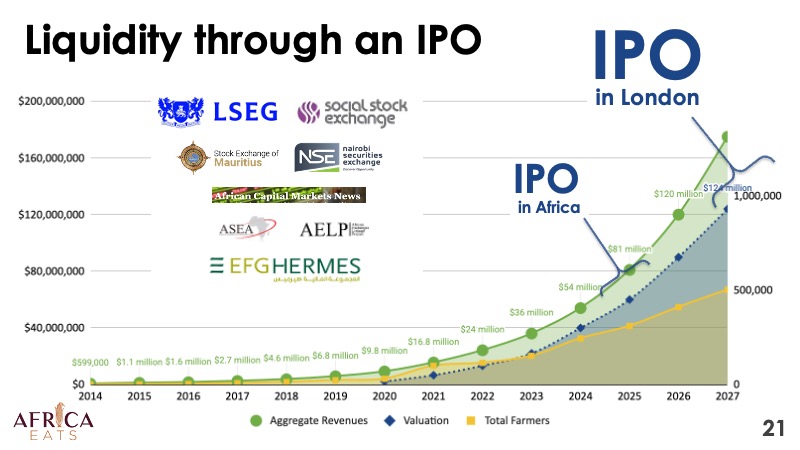
The plan is an IPO in Africa ASAP and an IPO in London later, when the valuation is large enough to justify that cost. More details on the Africa IPO coming soon…
Investors are then welcome to enjoy the continued growth beyond then, watching Africa Eats grow the portfolio to hundreds and companies and, if all goes well, billions of dollars of value.
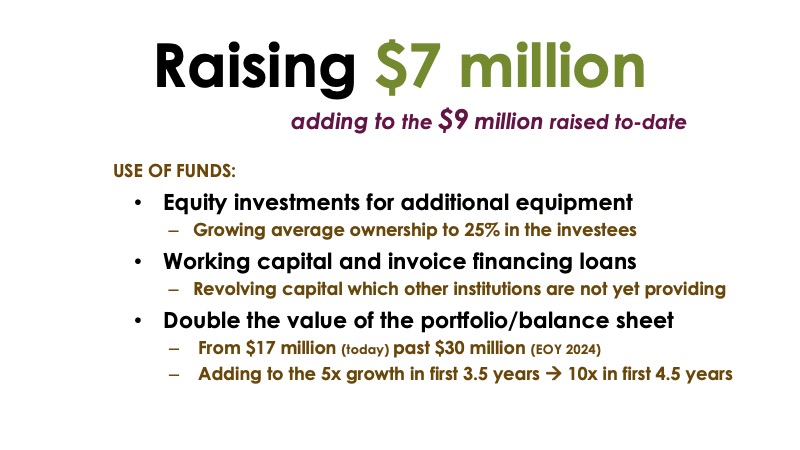
To do all this we are raising more capital. The slide says $7 million, which is sufficient for additional equity investments and short term operational capital issues. The portfolio could also use $15-$25 million in debt, to fund more trucks, more storage, and more logistics.
This on top of the $9 million raised so far.
If this sounds interesting, contact us for the rest of the details.
